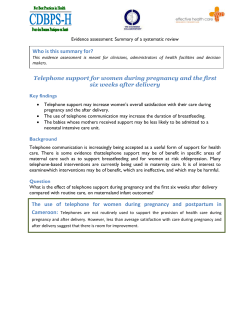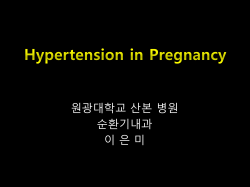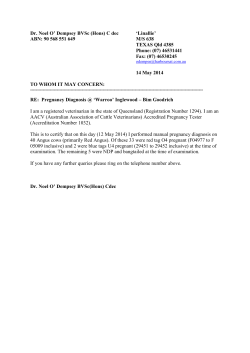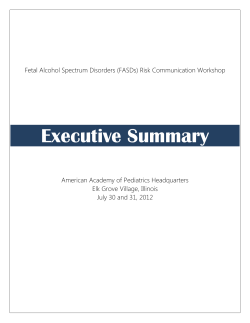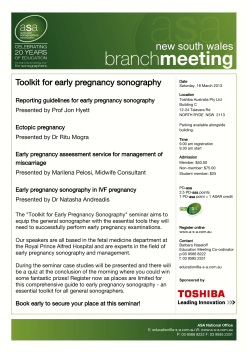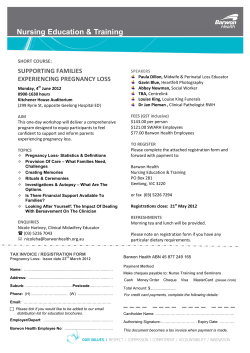
Background Summary of Research Proposal:
Version 20081112 The CHIPS Trial (Control of Hypertension In Pregnancy Study) Summary of Research Proposal: Background : Women with non-severe non-proteinuric pre-existing hypertension (1% of deliveries) or gestational hypertension remote from term (2-3% of deliveries) represent a highrisk group from both maternal and perinatal perspectives. It is still unclear how best to manage the non-severe hypertension in order to do more good than harm. The placenta does not autoregulate blood flow, so allowing blood pressure (BP) to be higher may improve uteroplacental perfusion, fetal growth, and ultimately, neonatal well-being. Based on our meta-analyses of RCTs, arguments can be made both for and against ‘less tight’ control of BP (allowing for higher BP levels). ‘Less tight’ control may decrease the risk of small for gestational age (SGA) infants, but may also increase the risk of (transient) severe maternal hypertension, antenatal hospitalisation, and proteinuria at delivery. However, there is insufficient evidence on which to base clinical decisions because of reporting bias and between-trial heterogeneity in outcome. Guidelines are founded mainly on expert opinion. The CHIPS Pilot Trial confirmed the importance and feasibility of a definitive RCT. Clinicians complied with the interventions and women were satisfied with their care. ‘Less tight’ (vs. ‘tight’) control resulted in higher dBP, and a more favourable effect on perinatal outcomes. We need a definitive RCT to inform clinical decision-making.. Primary research question : For pregnant women with non-severe non-proteinuric maternal hypertension at 14+0-33+6 weeks, will ‘less tight’ control (target dBP of 100mmHg) vs. ‘tight’ control (target dBP of 85mmHg) increase or decrease the likelihood of pregnancy loss or high level neonatal care for more than 48 hours? Research plan : The CHIPS Trial is an international multicentre RCT that will recruit 1,028 women (514/group) from 50 tertiary and community centres over 4 years. Selection criteria : Inclusion criteria: pre-existing/gestational hypertension; office dBP 90-105mmHg (or dBP 85-105mmHg if on antihypertensive medication); live fetus; and 14+0-33+6 weeks. Exclusion criteria: Severe systolic hypertension (≥160mmHg); proteinuria; contraindication to either arm of trial or to prolongation of pregnancy; ACE inhibitor use in pregnancy; known multiple gestation or lethal/major fetal anomaly; plan to terminate pregnancy; or prior participation in CHIPS (participation in the CHIPS Pilot does not exclude participation). Treatment allocation : Eligible women will be randomised centrally to either ‘less tight’ control (aiming for dBP of 100mmHg) or ‘tight’ control (aiming for dBP of 85mmHg) of their hypertension. Randomisation will be stratified by centre and type of hypertension (pre-existing or gestational). In the ‘less tight’ control group, if dBP is ≥ 105mmHg, then antihypertensive medication must be started or increased in dose. In the ‘tight’ control group, if dBP is ≤ 80mmHg, then antihypertensive medication must be decreased in dose or discontinued. Both groups: Centres will provide their usual care. Data will be collected on potential co-interventions (e.g., hospitalisation, bed-rest). Outcomes: Primary: Pregnancy loss (miscarriage or ectopic pregnancy, pregnancy termination, stillbirth, or neonatal death) or high level neonatal care for >48 hours in the first 28 days of life or prior to primary hospital discharge, whichever is later. Secondary: One/more serious maternal complication(s) until six weeks postpartum. Analyses : The primary outcome will be compared between groups using adjusted logistic regression (alpha of 0.046, two-sided). Two interim analyses are planned after primary outcome data are available for 1/3 and 2/3 of enrolled women; our independent Data Safety Monitoring Board will use p<0.0002 and p<0.012, two-tailed, as guidelines for considering early termination of the trial at the first and second interim analyses, respectively. Follow-up : Compliance (dBP and antihypertensive dose) will be assessed within 4 weeks of randomisation. Outcome data will be collected during the woman’s (and baby’s) hospital stay for birth (or loss). Women will be contacted 6 to 12 weeks after delivery (or loss) and, for preterm babies, when the baby is at 36 weeks corrected gestational age to enquire about satisfaction with care and any major maternal/neonatal morbidity following hospital discharge. Impact/outcome : The CHIPS Trial results will guide clinical practice nationally and internationally. For more information about the CHIPS Trial, please contact the CHIPS Co-ordinator at chips@cw.bc.ca
© Copyright 2025


